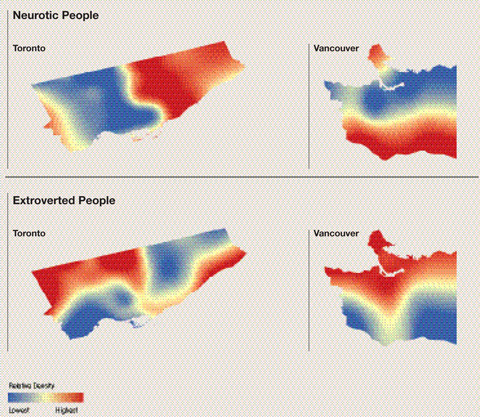Cities have physical and economic attributes. So why not personalities? Kevin Stolarick and his team at U of T’s Martin Prosperity Institute have been using data from online personality surveys to examine how cities are defined by their inhabitants. These maps (above) show the relative concentration of neurotic people and extroverted people living in Toronto and Vancouver. The institute has also created maps showing the location of agreeable people, conscientious people and people who are “open to experience.”
Stolarick says he is still studying the data, and can’t yet say whether people move to a place because they are neurotic, for example, or whether living in that place makes them neurotic. But he thinks that looking at personality types will help him better understand the factors that make some cities more prosperous than others. He also hopes to gain insight into how people choose where to live. “Where we are is now as important to us as what we do,” he says.






